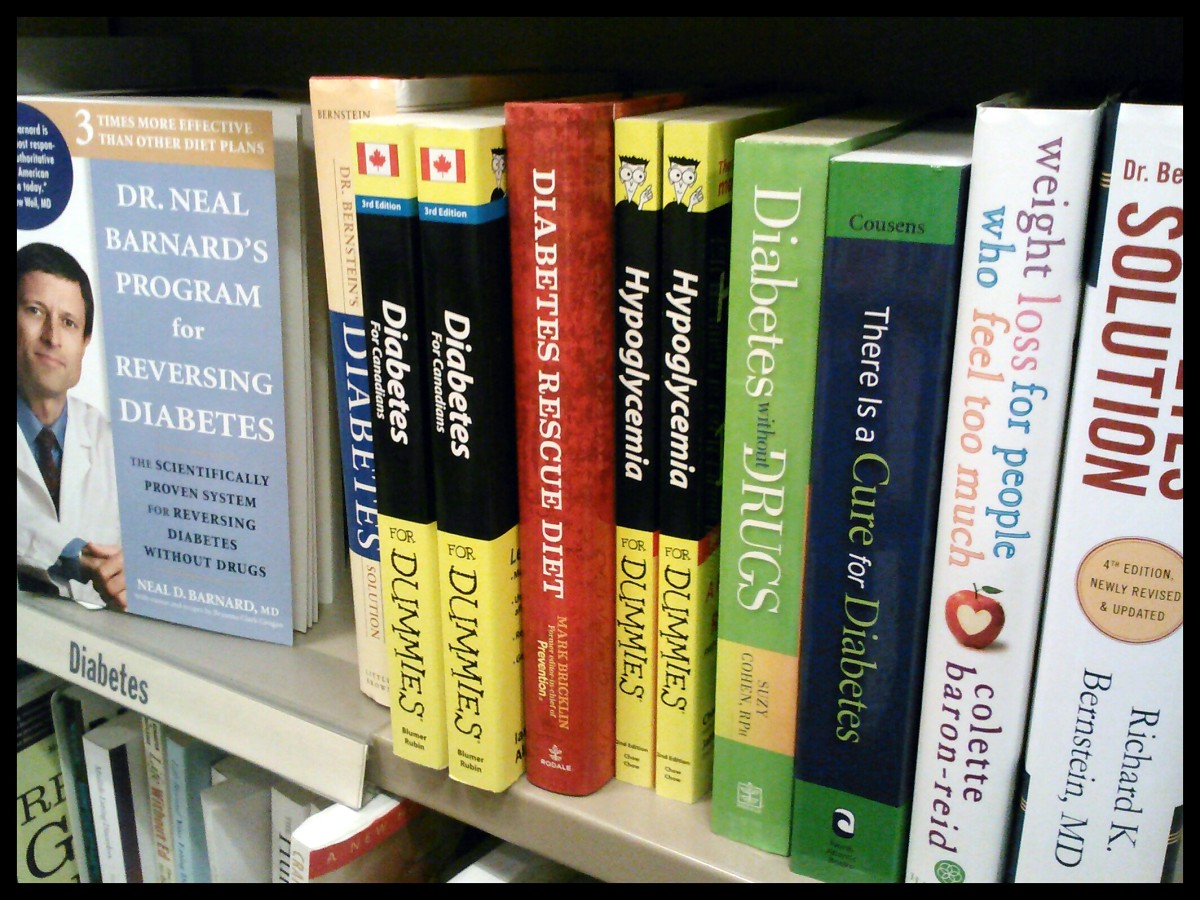Words: Virtue Bajurny
I’ve had this pet peeve for a while: go to any bookstore and look under the diabetes heading… What are you struck with? A plethora of cookbooks, diet plans, management how-to’s, and promises of magic reversal programs. What are you missing? Personal accounts; what life actually looks like living with any form of diabetes. I’ve seen a handful published personal narratives come out over the last while (which is awesome!), but there are still so so so many of those other books crowding the way.
So, when Dr. Beverly Adler, PhD, CDE offered to send us a copy of her two books for review I jumped at the chance without thinking. I sent her my address and she sent me one copy each of My Sweet Life: Successful women with diabetes and My Sweet Life: Successful men with diabetes. Soon after I sent her my mailing address, however, worrying thoughts starting sneaking their way into my mind: what if I didn’t like books? What did the title mean ‘successful’? Who were these people that I was about to read all about? It was with some trepidation, then, that I started the first of the two compilations of the My Sweet Life books…
My Sweet Life: Successful Women with Diabetes was the first book I picked up. After finishing the 24 chapters- each one a different story of life with diabetes from a different woman- I have to say that my previous worries seemed a little ridiculous. I’m glad for those insecurities though, because they caused me to really read through every last piece of print in the book. Doing so allowed for a deeper level of appreciation of this book, as it is the layers of stories that really made the book for me.
What do I mean by layers of stories? Well, each chapter of the book contains a different person’s diabetes story and personal narrative. If I looked at each individually, I would say some really resonated with me; while, others were engaging, but didn’t speak to my experiences as much. However, as a whole I gained something that I did not realize I would gather at the outset.
I gained a historical perspective that left me feeling a strange sense of gratitude by the end of the book. I don’t know that it was meant that way (as the narratives aren’t presented in any chronological order,) but I couldn’t help but compare my diagnosis date with the authors’ and note the differences I experienced in diabetes technology. The late Heartha Whitlow, who at the time of publication had been living with Type 1 for over 70 years, described trying to gauge her insulin dosage in the 1940’s:
You see, in those days, we couldn’t run blood sugar tests. I was given a little kit for checking sugar in my urine. I consisted of a small test tube, a blue table (a copper compound), and another tablet which could be set on fire under the tubing. A positive test, which indicated sugar in the urine, would turn the urine orange or red. This was not very accurate, because it gave no indication until sugar was spilled (which I think happened at about 180 mg/dL [10 mmol/L]).
While many of the authors were diagnosed after this method of testing, few were living with diabetes prior to the invention of personal glucose meters. Instead they spoke of using Tes-tape, or ketone strips, to determine if their blood glucose levels. I knew about both glucose tests long before reading My Sweet Life: Successful women with diabetes, but the historical medical pieces that taught me about such measures never detailed the cost of their imprecision: complications.
I remember being particularly struck reading Sally Joy’s story of getting a blood glucose meter in March of 1981, after fifteen years of living with Type 1. She recalls, “When I began testing, my blood sugar levels were in the 200+ mg/dL [11.1 mmol/l] to 300+ mg/dL [16.7 mmol/l] range most of the time. These high blood sugars had occurred for years and were an invitation for later complications.” Despite bringing her blood glucose levels and A1c down, the years of high glucose levels that ensued prior to gaining a glucose meter led Sally’s kidneys to fail in 1985. She was 35 years old, and had been living with diabetes for 19 years… which is the same age I am now, with the same number of years living with Type 1. While she talked about having to deal with retinal hemorrhages, peripheral neuropathy, and foot ulcers in addition to nephropathy by that point, I’ve had no complications to deal with to date. As much as I get frustrated with meter technology and hope for better tools one day, reading the stories of life before blood glucose testers made me realize a greater sense of gratitude for these instruments.
As I neared the end of the book I found myself thinking more and more about the idea of ‘success’ presented in the book’s title. The women of this compilation are all quite varied- bloggers, diabetes educators, entrepreneurs, entertainers, researchers- and I suppose they could be thought of as successful because of their professional feats. However, after reading everyone’s very different experiences with diabetes (entailing both struggles and triumphs) I found myself thinking that the theme of success in the book was less about such accomplishments and more that each and every one of them seems to have consciously strived to live their lives to the fullest. I think that is what I most liked from this book, because it sets it apart from the dull plethora of cookbooks, diet plans, management how-to’s, and promises of diabetes reversal programs: it’s not about what is wrong with you and diabetes, but about going for all the things you have going right in front of you.
As I turned over the final page of the book I found myself feeling grateful for the perspectives put forth in My Sweet Life: Successful women with diabetes. I definitely recommend checking it out if you are looking for personal narratives on life with diabetes. My only note about the collection, since we are a Canadian organization here, is that there are no Canadian voices represented in the compilation… but I think that might just mean that there will need to be more books in this series 😉
Click here to order your own copy of My Sweet Life: Successful women with diabetes .
Tune in next week as we review… My Sweet Life: Successful men with diabetes!






